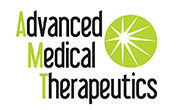Alzheimer's Disease Treatment

What Is Alzheimer's Disease?
Alzheimer's disease is the most common type of dementia characterized by progressive deterioration of your cognitive and memory functions which, in particular, affect your thinking capacity, memory, and behavior. The symptoms of Alzheimer's disease worsen gradually overtime and eventually inhibit daily activities and your overall independence.
If you or a loved one are experience Alzheimer's disease symptoms, treatment is available to slow the progression of the disease and preserve your quality of life. To meet with a healthcare practitioner in West Palm Beach who specializes in Alzheimer's disease treatment, call (561) 623-9344 or contact Dr. Mark Rosenberg online.
Causes of Alzheimer's Disease
Although the exact cause of Alzheimer's disease is not fully understood, most healthcare professionals believe that it is caused by a combination of genetic, lifestyle, and environmental factors.
By examining the brain tissue of patients with AD, healthcare professionals have been able to identify several common abnormalities. When a patient has AD, the communication between brain cells is disrupted, and the various pathways that transport nutrients to the cells are tangled. This causes the brain cells of a patient to die off, accompanied by both inflammation, lapses in memory, and eventual brain shrinkage.
There are several risk factors that may increase your risk of developing Alzheimer's, including:
- Over the age of 65
- Family history of AD
- Down syndrome
- Gender (woman are more likely to develop Alzheimer's)
- Severe head trauma
Symptoms of Alzheimer's Disease
Alzheimer's disease is classified as either a major or minor neurocognitive disorder. It is primarily characterized by a progressive loss of short-term and long-term memory. If you have Alzheimer's disease, you may forget names and locations you have known for years. You may also repeat questions over and over again, and may get lost in familiar places.
There are 7 stages to AD, each with their own set of symptoms. These stages are:
- Normal Outward Behavior: At this stage, there are no symptoms, and only a PET scan of the brain can determine the presence of the disease.
- Very Mild Changes: You may begin to forget words or misplace objects. These may not be signs of Alzheimer's disease, but simple signs of aging.
- Mild Decline: Short term memory loss begins to set in, such as forgetting information you just learned.
- Moderate Decline: It may become harder to remember personal information.
- Moderately Severe Decline: At this stage, long term memory begins to be affected. You may begin to forget your home address or where you went to school.
- Severe Decline: You can remember faces but not names, and at this point, delusions about who people are or what year it is have begun.
- Very Severe Decline: Basic abilities such as eating and walking begin to fade.
Additional symptoms of Alzheimer's disease include:
- Depression
- Aggression
- Mood Swings
- Change in sleep patterns
- Delusions
- Wandering
- Apathy
- Social Withdrawal
Complications can arise from the symptoms of Alzheimer's disease. If you have Alzheimer's, you may not be able to accurately express that you have symptoms of other diseases. For example, you might have difficulty explaining that you have stomach pain from an ulcer, or remember the kind of prescription medication you take. As the disease progresses, it will begin to affect your motor functions, potentially leading to fractures and falls from a loss of body coordination, aspiration, and infections.
Diagnosis of Alzheimer's Disease
There are various ways that your healthcare provider can test for the presence of Alzheimer's disease. Physical and neurological tests, such as testing reflexes, coordination, balance, sight, hearing and muscle strength, can evaluate your overall neurological health. Blood tests can rule out other causes of memory loss, such as thyroid disorders or vitamin deficiencies.
MRI, CT and PET scans can be used to pinpoint precise brain abnormalities to rule out other brain disorders such as strokes, tumors, or head injuries, while also looking for signs of Alzheimer's disease such as brain shrinkage. In cases of rapid dementia, a cerebrospinal fluid examination may be done to examine the spinal fluid within a patient's brain.
Alzheimer's Disease Treatment
While there is no known cure for Alzheimer's, treatment consists of therapies designed to slow the progression and manage its symptoms. The detection of early-onset Alzheimer's disease can result in more effective treatment.
There are several medications that can be used to treat AD. Cholinesterase inhibitors are drugs that improve cell-to-cell communication by providing the neurotransmitter acetylcholine, thus moderately improving memory, thinking, language, judgment, and other thought processes. Memantine is another drug that is prescribed to improve memory, attention, reason, language, and the ability to perform simple tasks. It is often prescribed alongside other AD treatments.
Another important way to treat AD is to modify your home environment by focusing on strengthening routine habits and minimizing memory-demanding tasks. Steps for this include:
- Keeping keys, wallet, and other valuables in one spot
- Carry a mobile phone at all times
- Arrange for automatic payment and deposits
- Keep appointments consistently on the same day and time
- Install handrails on stairways and in bathrooms
- Remove mirrors, excess furniture and throw rugs
Support for the Caregivers
For those who are supporting a loved one with Alzheimer's disease, there can be a lot of stress involved in the process. Caregivers may experience:
- Exhaustion and health problems due to the physical and emotional demands
- Denial of the disease and the effect it has on their loved one
- Anger and what their loved one is forgetting
- Social withdrawal from friends and activities
- Anxiety about what will happen next
- Depression over the situation
Thankfully, there are many ways that caregivers can support themselves and overcome this stress. These include:
- Engaging in physical activities to improve physical health
- Educating themselves on Alzheimer's disease
- Utilizing relation techniques
- Take personal recreational breaks
- Surrounding oneself with a support group
- Making financial plans for the future
Preventing Alzheimer's Disease
Although the exact cause of Alzheimer's disease is unknown, there are ways to potentially lower your chances of developing the condition, including:
- Actively engaging in mentally and socially stimulating activities throughout your life
- Exercise; it increases blood flow to the brain
- Have a heart-healthy diet (avoid saturated fats and sugar and eat fruits, vegetables, and whole grains)
Alzheimer's disease can affect you and your family in many difficult ways. However, there are support groups that you can reach out to for help, as well as healthcare practitioner who will give you the care you need to live a happy and fulfilling life. To find out more information about Alzheimer's disease support in West Palm Beach, call (561) 623-9344 or contact Dr. Mark Rosenberg online.
Advanced Medical Therapeutics LLC
Address
6100 Glades RoadSuite 304
Boca Raton, FL 33434
(561) 623-9344
www.amtcare.com
Hours
Mon:
8:30 am - 4:30 pm
Tue:
8:30 am - 4:30 pm
Wed:
8:30 am - 4:30 pm
Thu:
8:30 am - 4:30 pm
Fri:
8:30 am - 4:30 pm


